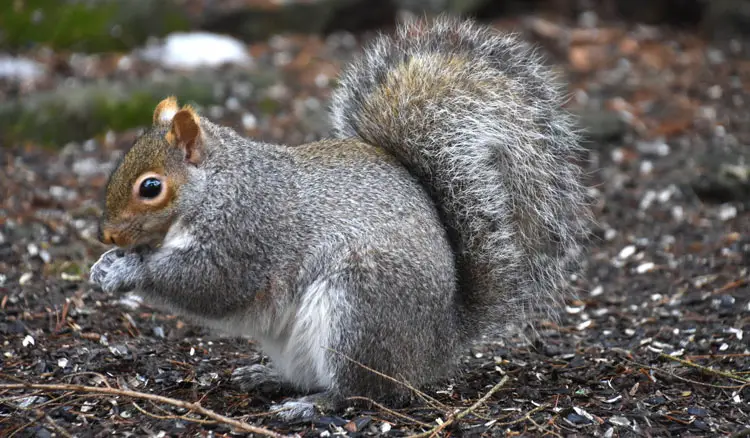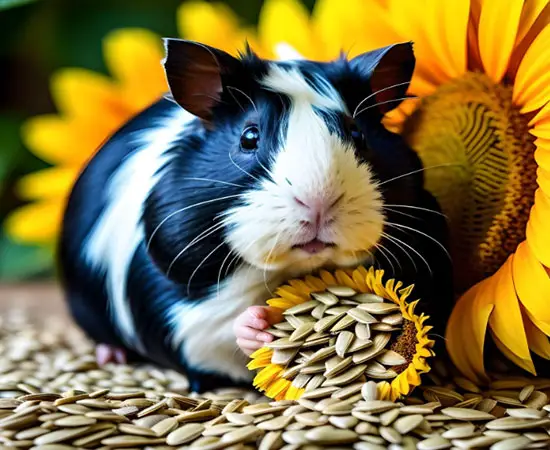Guinea pigs can enjoy beet greens in moderation. These leafy treats offer vitamins, fiber, and antioxidants, enhancing their balanced herbivore diet.
Guinea pigs, those adorable and affectionate little furballs, have quite the reputation for being herbivores. As responsible pet owners, it’s crucial to ensure that we provide our furry friends with a well-rounded and nutritious diet. One question that often arises is whether guinea pigs can munch on beet greens, the leafy tops of the beetroot we humans love to enjoy. In this comprehensive guide, we’ll explore the nutritional aspects of beet greens for guinea pigs and whether these leafy treats are a safe addition to their diet.
The Nutritional Breakdown of Beet Greens
Beet greens, often overshadowed by their vibrant root counterpart, are a nutritional powerhouse in their own right. These leafy greens are low in calories but high in essential vitamins and minerals. A mere one-cup serving of cooked beet greens provides a substantial dose of vitamin K, which supports bone health and blood clotting. They are also a noteworthy source of vitamin A, contributing to healthy vision and immune function. Additionally, beet greens offer a respectable amount of vitamin C, a vital antioxidant that aids in collagen formation and boosts your guinea pig’s immune system. These greens are a noteworthy source of dietary fiber, promoting digestive wellness and helping to prevent constipation. The presence of minerals like iron, magnesium, and potassium further adds to the nutritional value of beet greens, making them a promising candidate for enriching your guinea pig’s diet.
Can Guinea Pigs Eat Beet Greens?
Guinea pigs are herbivores, but can they safely consume beet greens? Let’s explore.
Are Beet Greens Safe for Guinea Pigs?
Yes, guinea pigs can eat beet greens in moderation. These leafy greens are non-toxic and generally well-tolerated by our small, furry companions. However, as with any new addition to their diet, it’s crucial to introduce beet greens gradually and observe your guinea pig for any adverse reactions.
Moderation is Key: Serving Size and Frequency
While beet greens can be a nutritious treat, moderation is key. Offer small amounts initially and gradually increase the serving size. Beet greens should not replace the staple components of your guinea pig’s diet, such as hay and pellets.
Health Benefits of Beet Greens for Guinea Pigs
Leafy treasures packed with nutrients, beet greens can offer a range of advantages that contribute to your guinea pig’s overall vitality.
Rich Source of Vitamins and Minerals
Beet greens boast an impressive array of vitamins, including vitamins C, A, and K, all of which are vital for your guinea pig’s overall health. Vitamin C, in particular, is essential as guinea pigs cannot produce it on their own.
Fiber Content for Digestive Health
Fiber is a cornerstone of a guinea pig’s diet, and beet greens deliver a healthy dose of it. Adequate fiber intake supports proper digestion and helps prevent common gastrointestinal issues.
Antioxidants and Immune Support
Beet greens contain antioxidants that contribute to a stronger immune system in guinea pigs. These antioxidants help neutralize harmful free radicals and promote better health.
Introducing Beet Greens to Your Guinea Pig
Introducing new foods to your guinea pig’s diet requires a thoughtful approach. Follow these steps to ensure a smooth transition to beet greens:
Step 1: Wash and Prepare
Thoroughly wash the beet greens to remove any dirt or pesticides. Trim the leaves into small, manageable pieces, making it easier for your guinea pig to nibble.
Step 2: Start Small
Begin by offering a tiny piece of beet green alongside their regular food. This gradual introduction helps prevent sudden dietary changes that could upset their sensitive digestive system.
Step 3: Monitor and Observe
Watch your guinea pig closely after they consume beet greens for the first time. Monitor for any signs of digestive distress, such as bloating or diarrhea. If they show no adverse reactions, you can proceed.
Step 4: Gradual Increase
Over several days, gradually increase the portion size of beet greens. Observe your guinea pig’s response at each stage. If they continue to tolerate the greens well, you can incorporate them into their diet more regularly.
Step 5: Variety is Key
Remember that beet greens should complement a diverse array of vegetables and high-quality hay in your guinea pig’s diet. Rotate different vegetables to provide a well-rounded nutritional intake.
By following these steps, you can introduce beet greens to your guinea pig in a safe and controlled manner, ensuring their well-being and enjoyment of this nutritious addition to their menu.
What Do Experts Say About Guinea Pigs and Beet Greens?
The consensus among veterinary experts and guinea pig enthusiasts leans toward the positive inclusion of beet greens in your furry friend’s diet. However, it’s essential to heed some expert advice:
Veterinarian Consultation
Before making any significant changes to your guinea pig’s diet, it’s wise to consult a veterinarian who specializes in small animal care. They can offer tailored guidance based on your guinea pig’s individual health needs.
Moderation is Key
While beet greens are generally safe, moderation remains crucial. Experts recommend that beet greens make up only a small portion of your guinea pig’s overall diet. Aim for variety by including other safe leafy greens and vegetables as well.
Balanced Diet
Nutritionists emphasize that the foundation of a guinea pig’s diet should be high-quality hay, which provides essential fiber. Pellets formulated specifically for guinea pigs can also be a part of their daily intake, alongside small amounts of fresh vegetables like beet greens.
Watch for Allergic Reactions
Just like humans, guinea pigs can have allergies too. While rare, it’s essential to be vigilant for any signs of adverse reactions when introducing new foods. If you notice any unusual behavior or symptoms, consult your veterinarian promptly.
Tailoring to Individual Needs
Each guinea pig is unique, with its dietary preferences and sensitivities. Some may take to beet greens more readily than others. Pay attention to your pet’s cues and adjust their diet accordingly.
It’s important to keep in mind that while expert opinions can be helpful, as a responsible guinea pig owner, your role is crucial. By combining expert advice with your knowledge of your guinea pig’s personality and health, you can create a nourishing diet that promotes their overall health and well-being.
Potential Risks and Precautions
It’s important to be aware of the possible dangers of feeding your guinea pig beet greens in order to ensure their health and safety.
Oxalates and Calcium Content
While beet greens offer an array of nutrients, it’s essential to be aware of their oxalate content. Oxalates are compounds that can bind to calcium, potentially leading to the formation of urinary stones. To mitigate this risk, ensure that your guinea pig’s diet includes a proper balance of calcium-rich foods, such as high-quality pellets, and monitor their overall calcium intake.
Allergic Reactions and Digestive Issues
Though rare, some guinea pigs may exhibit allergies or sensitivities to certain foods, including beet greens. When introducing any new vegetable, closely observe your pet for any signs of allergic reactions such as itching, swelling, or gastrointestinal distress. If you notice any adverse symptoms, discontinue the food and consult a veterinarian.
Beet Greens and Gastrointestinal Upset
Guinea pigs have delicate digestive systems, and introducing new foods too quickly or in large quantities can lead to gastrointestinal upset. To prevent this, gradually introduce beet greens as outlined in the step-by-step guide. Avoid overfeeding and monitor your guinea pig for any signs of discomfort, such as bloating or changes in stool consistency.
Food Hygiene and Preparation
Proper food hygiene is paramount when offering any fresh produce to your guinea pig. Thoroughly wash beet greens to remove dirt, pesticides, and any potential contaminants. Ensure that the greens are clean and free from any traces of chemicals before offering them to your furry companion.
Consult Your Veterinarian
If you have concerns about your guinea pig’s diet or are unsure about introducing beet greens, don’t hesitate to seek guidance from a qualified veterinarian. A professional who specializes in small animal care can provide personalized advice based on your guinea pig’s specific needs and health status.
Frequently Asked Questions about Guinea Pigs’ Diet
Can guinea pigs eat beetroot?
Yes, guinea pigs can enjoy beetroot, but it’s essential to exercise caution. Beetroot is relatively high in natural sugars, so it should be offered sparingly as an occasional treat. Opt for small, thin slices to prevent choking hazards.
What other leafy greens can guinea pigs eat?
Guinea pigs have a diverse palate when it comes to leafy greens. Alongside beet greens, you can include options like romaine lettuce, kale (in moderation), spinach, cilantro, parsley, and dandelion greens. Remember to introduce new greens gradually and monitor for any adverse reactions.
How often should beet greens be included in the diet?
Beet greens, like other fresh vegetables, should be offered in moderation. Aim for a few times a week as part of a varied diet. The majority of your guinea pig’s diet should consist of high-quality hay and pellets designed for their specific dietary needs.
Can guinea pigs eat the stalks of beet greens?
Yes, guinea pigs can consume the stalks of beet greens, but they may be slightly tougher than the leaves. Chopping the stalks into smaller, manageable pieces can make it easier for your furry friend to enjoy this part of the vegetable.
Can guinea pigs eat frozen beet greens?
While guinea pigs can consume frozen beet greens, it’s preferable to offer them fresh. Freezing can sometimes affect the texture and nutrient content of the greens. If you choose to offer frozen greens, ensure they are thawed and at room temperature before serving.
Can guinea pigs eat beet greens every day?
While beet greens provide valuable nutrients, it’s not advisable to feed them to your guinea pig every day. Variety is key to a balanced diet, so rotate different vegetables and leafy greens to provide a wide range of nutrients and flavors.
Can guinea pigs eat beet greens from the garden?
Beet greens from your garden can be a delightful treat for your guinea pig, provided they are free from pesticides and chemicals. Thoroughly wash the greens before offering them to ensure your furry companion’s safety.
Summing Up
In conclusion, beet greens can indeed be a nutritious addition to your guinea pig’s diet, offering a range of vitamins, minerals, and fiber. When introduced with care and moderation, these leafy greens can contribute to your furry friend’s overall well-being. As with any dietary change, consulting with a veterinarian is recommended to ensure your guinea pig’s specific needs are met.
Remember, the key to a happy and healthy guinea pig lies in providing a diverse and balanced diet that includes a variety of safe and nutritious foods. So, go ahead and treat your adorable companion to a leafy green snack – they just might thank you with a little wiggle of their nose!

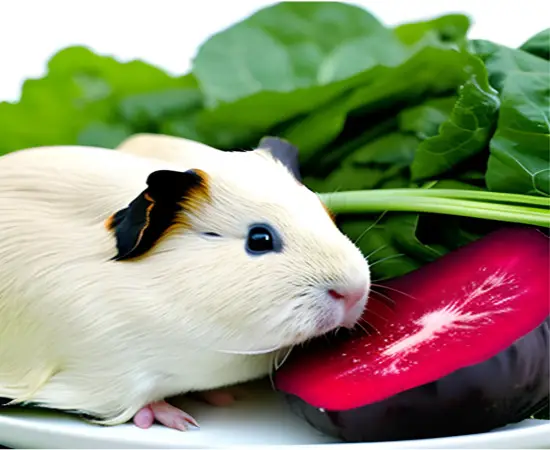
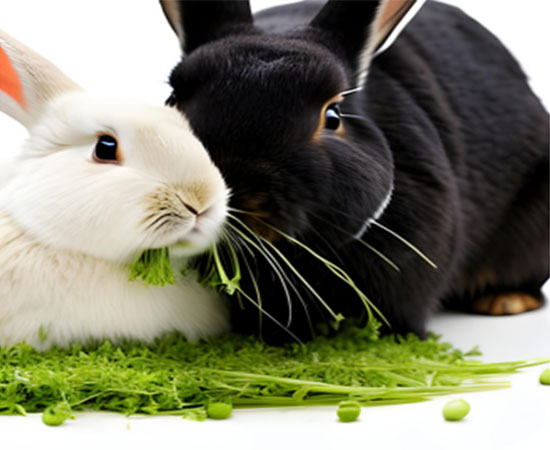
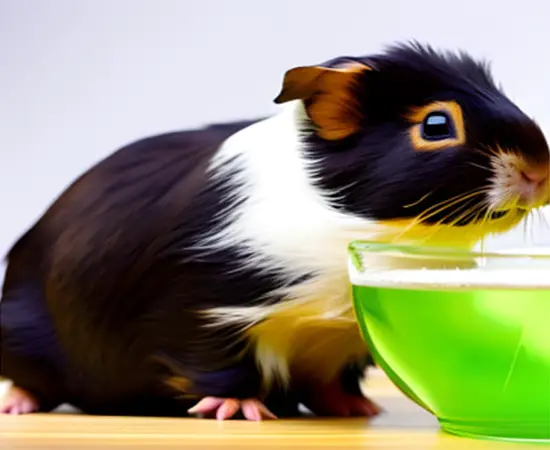
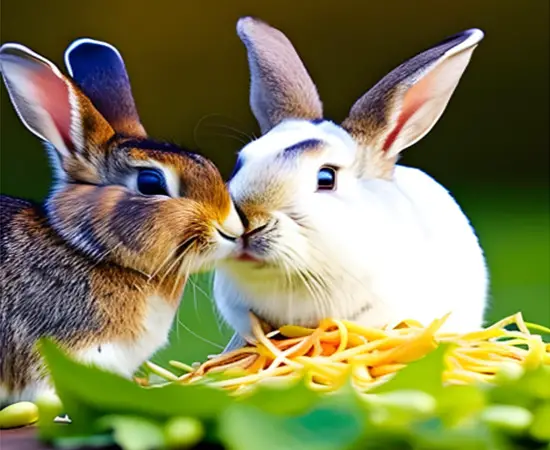
![[Explored] Can Squirrels Eat Grapes?](https://www.rodentsfamily.com/wp-content/uploads/2023/09/Squirrels-Eat-Grapes-768x502.jpg)
